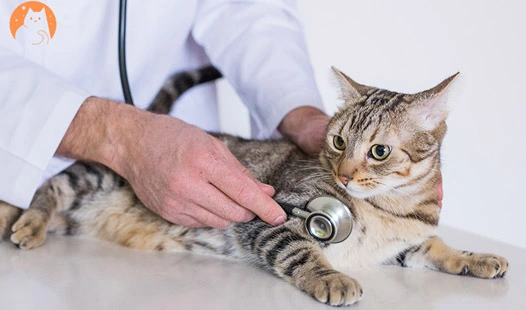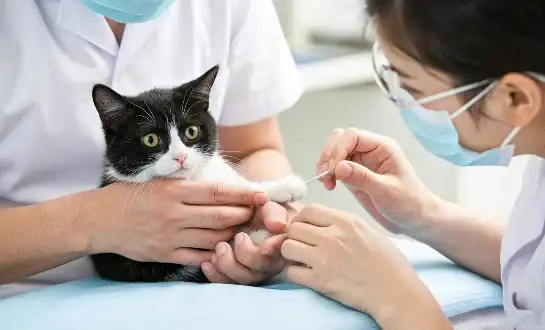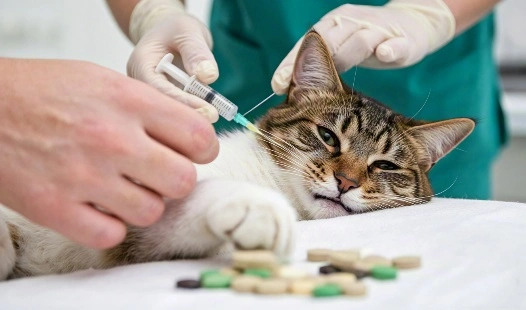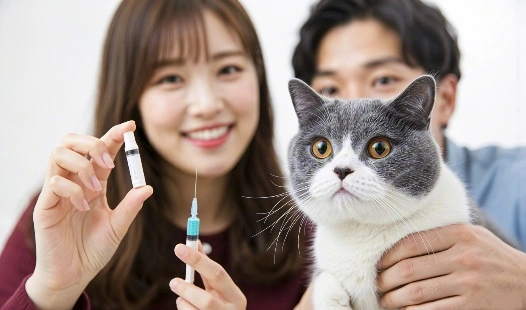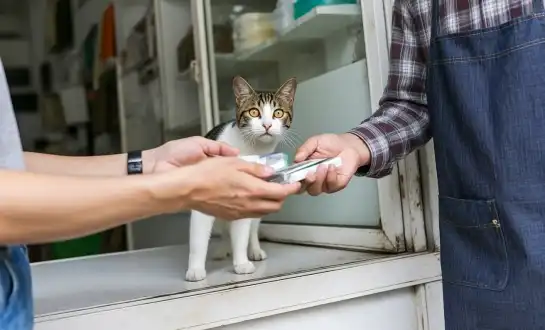Is GS-441524 the same as Molnupiravir?
Comparing GS-441524 and Molnupiravir mechanisms
Two molecules, GS-441524 fip and Molnupiravir, have attracted significant attention in recent years as potential antiviral therapies for a range of viral infections. Both compounds function as nucleoside analogues, meaning they interfere with viral RNA replication and thereby inhibit the ability of viruses to reproduce. However, despite their similar fundamental antiviral mechanisms, the characteristics, pharmacokinetics, and clinical applications of these two drugs differ considerably. GS-441524 has been primarily studied in veterinary medicine, showing promising results against feline coronavirus infections, whereas Molnupiravir has been widely explored in human medicine, particularly for treating SARS-CoV-2. By examining the mechanisms of action, efficacy data, safety profiles, and prospective applications of these molecules, this article aims to provide a detailed comparison, highlighting both their shared antiviral properties and the unique contexts in which each agent may offer the greatest therapeutic benefit.
|
|
|
Comparing GS-441524 and Molnupiravir mechanisms
GS-441524: The Nucleoside Analog
GS-441524 is a nucleoside analog that serves as a critical precursor to the active metabolite of remdesivir, one of the widely studied antiviral agents. Its mechanism of action involves direct inhibition of viral RNA-dependent RNA polymerase, an essential enzyme responsible for replicating the viral genome. By interfering with this polymerase, GS-441524 effectively halts viral replication and prevents the production of new infectious viral particles. This mechanism has made it a promising candidate for treating a variety of viral infections, particularly those caused by coronaviruses. Preclinical and clinical studies have shown that GS-441524 can significantly reduce viral load and improve survival outcomes in affected hosts. Its relatively targeted approach, combined with favorable pharmacokinetic properties, allows for consistent antiviral activity while minimizing the impact on host cellular processes.
Molnupiravir: The Mutagenic Approach
Molnupiravir operates through a distinct and innovative mechanism compared to conventional antivirals. Rather than directly inhibiting viral replication enzymes, it acts by incorporating itself into the viral RNA during genome replication. This incorporation induces a high frequency of mutations, or errors, within the viral genome, ultimately causing what is known as “error catastrophe.” As the mutations accumulate, the virus loses its ability to produce functional proteins and replicate effectively, rendering it non-infectious. This mutagenic strategy sets Molnupiravir apart from traditional antiviral therapies, as it leverages the virus’s own replication machinery against itself. Clinical studies have demonstrated its effectiveness in reducing viral load and shortening the duration of infection in patients, highlighting its potential as a powerful tool in the fight against RNA virus infections.
Key differences in antiviral applications
Target Viruses
While both compounds exhibit broad-spectrum antiviral activity, their primary targets differ. GS-441524 has shown particular efficacy against coronaviruses, including SARS-CoV-2 and feline infectious peritonitis virus (FIPV). Molnupiravir, initially developed for influenza, has demonstrated activity against various RNA viruses, including SARS-CoV-2.
Route of Administration
GS-441524 is typically administered parenterally, often through subcutaneous injection. This makes it particularly suitable for veterinary applications, such as in the treatment of feline infectious peritonitis (FIP). Molnupiravir, conversely, is formulated as an oral medication, offering convenience for human use in outpatient settings.
|
|
|
|
Which drug is more effective for FIP?
GS-441524: The FIP Frontrunner
When it comes to feline infectious peritonitis (FIP), GS-441524 fip treatment has emerged as a leading option. Numerous studies and clinical experiences have demonstrated its efficacy in treating this once-fatal feline disease. The compound's ability to cross the blood-brain barrier makes it particularly effective against neurological manifestations of FIP.
Molnupiravir in Feline Medicine
While Molnupiravir has shown promise against various RNA viruses, its use in feline medicine, particularly for FIP, remains limited. The focus of Molnupiravir research has primarily been on human applications, leaving GS-441524 as the more established option for FIP treatment in cats.
|
|
|
Conclusion
In conclusion, while GS-441524 and Molnupiravir are both antiviral compounds, they are not the same. They differ in their mechanisms of action, primary applications, and routes of administration. GS-441524 fip treatment has emerged as a significant breakthrough in veterinary medicine, particularly for cats suffering from FIP. Molnupiravir, while promising in its own right, has found its niche in human antiviral therapy.
As research on GS-441524 and Molnupiravir continues, both compounds may find broader and more diverse applications across a range of viral infections. The development of these antivirals represents a major advancement in our scientific and medical capabilities, demonstrating how targeted therapies can effectively interfere with viral replication and reduce disease severity. Their progress not only provides valuable tools for human medicine but also shows promise in veterinary applications, such as treating coronavirus infections in animals. Overall, these breakthroughs offer renewed hope for more effective and accessible treatments, improving outcomes for patients and animals alike.
FAQ
1. Can GS-441524 be used to treat COVID-19 in humans?
While GS-441524 has shown activity against SARS-CoV-2 in laboratory studies, it is not currently approved for human use in treating COVID-19. Clinical trials are ongoing to evaluate its potential in this area.
2. Is Molnupiravir effective against feline infectious peritonitis (FIP)?
There is limited data on Molnupiravir's efficacy against FIP. Current research and clinical practice favor GS-441524 for FIP treatment in cats.
3. Are there any side effects associated with GS-441524 treatment in cats?
While generally well-tolerated, some cats may experience mild side effects such as injection site reactions or gastrointestinal upset. Close veterinary supervision is essential during treatment.
Quality GS-441524 – Low Price
Here at Shaanxi BLOOM TECH Co., Ltd., we're dedicated to helping researchers and clinicians advance antiviral research by producing top-notch substances. Producing high-quality GS-441524 for veterinary usage, especially in the treatment of FIP, is ensured by our GMP-certified facilities. The manufacturing of pharmaceutical intermediates and fine chemicals is an area in which we excel, thanks to our extensive background in organic synthesis spanning more than a decade.
Are you a compounding pharmacy, research facility, or veterinary pharmaceutical manufacturer in need of trustworthy GS-441524 suppliers? Stop searching now. Exceptional product resources, transparent pricing, and personalised service are all part of what our expert team offers. We are here to support your endeavours to improve animal health since we know how important your job is.
Don't let supply chain issues hinder your research or treatment protocols. Contact us today at Sales@bloomtechz.com to learn more about our GS-441524 offerings and how we can support your antiviral initiatives. Together, we can make a difference in the fight against FIP and other viral diseases.
References
1. Murphy, B. G., et al. (2020). "The nucleoside analog GS-441524 strongly inhibits feline infectious peritonitis (FIP) virus in tissue culture and experimental cat infection studies." Veterinary Microbiology, 219: 108452.
2. Szemiel, A. M., et al. (2021). "In vitro evolution of Remdesivir resistance reveals genome plasticity of SARS-CoV-2." bioRxiv.
3. Painter, W. P., et al. (2021). "Human Safety, Tolerability, and Pharmacokinetics of Molnupiravir, a Novel Broad-Spectrum Oral Antiviral Agent with Activity Against SARS-CoV-2." Antimicrobial Agents and Chemotherapy, 65(5): e02428-20.
4. Pedersen, N. C., et al. (2019). "Efficacy and safety of the nucleoside analog GS-441524 for treatment of cats with naturally occurring feline infectious peritonitis." Journal of Feline Medicine and Surgery, 21(4): 271-281.

Echo
9 years of experience in chemical articles; Doctoral degree; Organic Chemistry major; R&D-4 Dept; Technology support; R&D engineer
Anticipating your Business & Technology support inquiry
Please send us the products that interest you, and we will provide you with one-on-one service
Recommended Blog
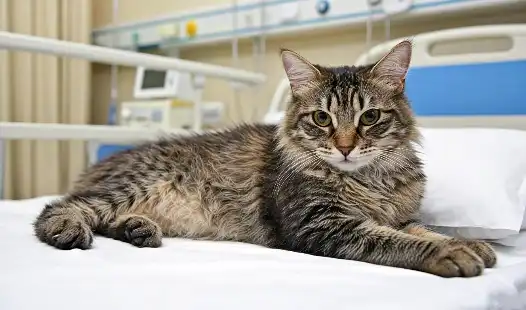
From Despair to Hope: A Cat Owner's GS-441524 Treatment Journey
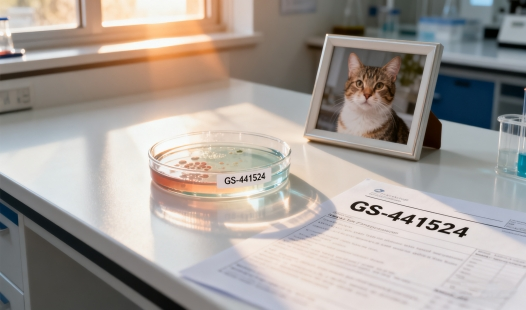
What are the differences in treatment for wet and dry FIP?
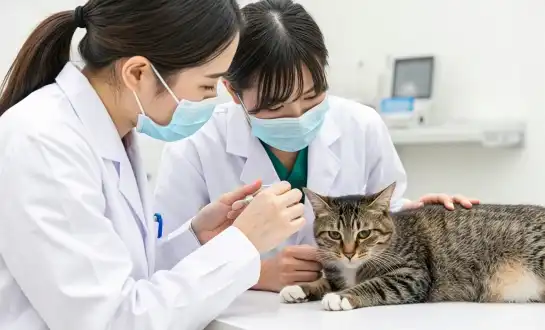
The Secret of GS-441524 Powder: How to Compound Your Own Oral Solution?

How to Tell if Your Cat is Fully Cured After GS-441524 Treatment?









